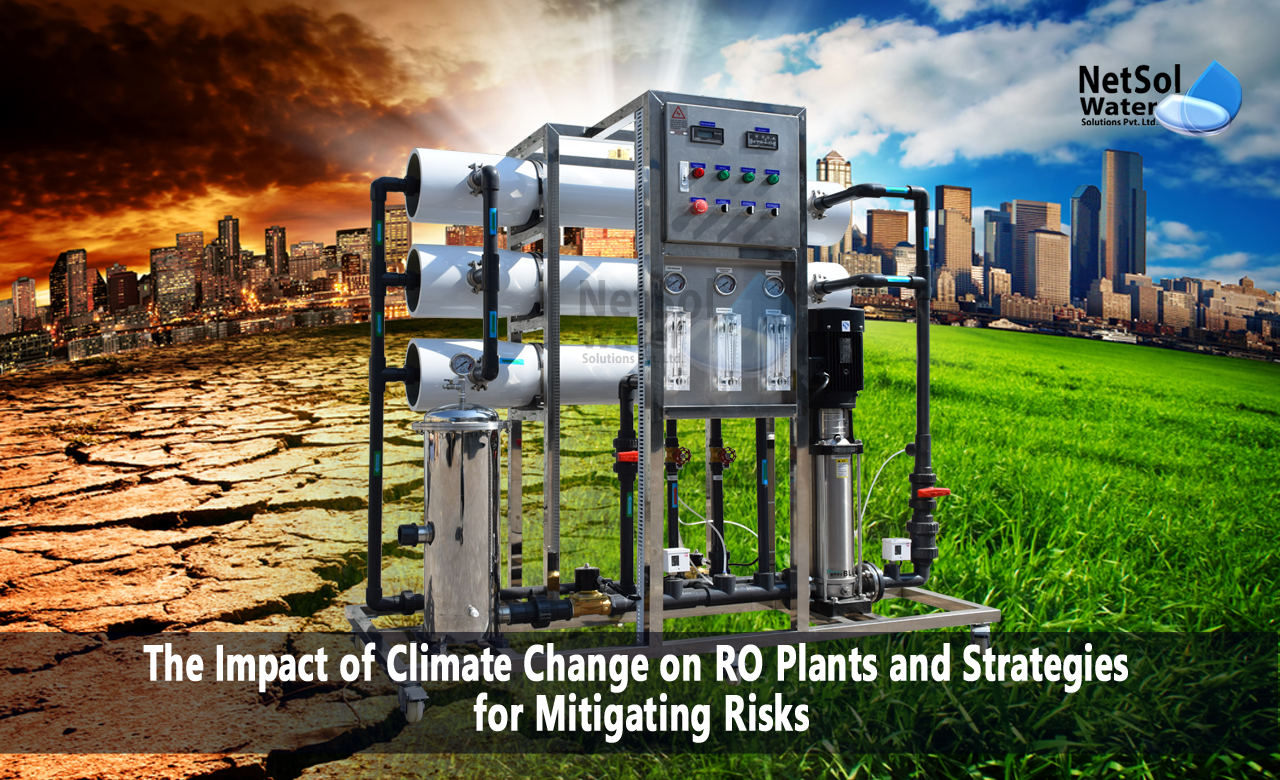What are the Impact of Climate Change on RO Plants?
Climate change is an undeniable reality and is having a significant impact on various industries worldwide. One such industry that is directly affected by climate change is the Reverse Osmosis (RO) plant industry. RO plants are vital for desalination and water treatment, and the risks associated with the impact of climate change can be detrimental to their operations.
In this blog, we will discuss the impact of climate change on RO plants and the strategies that can be employed to mitigate these risks.
Impact of Climate Change on RO Plants:
1. Reduced water availability: Climate change can cause a decrease in freshwater availability, which can reduce the amount of water that can be treated by RO plants. Droughts and heatwaves can lead to water scarcity and increase the salinity of water sources, making them harder to treat.
2. Sea-level rise: The rise in sea level caused by climate change can increase the salinity levels of coastal water sources, making it harder for RO plants to treat the water. In some cases, the saltwater intrusion can be so high that it can damage the membranes in RO plants.
3. Extreme weather events: Climate change is leading to an increase in extreme weather events, such as floods, hurricanes, and typhoons. These events can damage RO plants, disrupt their operations, and lead to increased downtime.
Strategies for Mitigating Risks:
1. Water conservation: RO plants can implement water conservation measures to reduce their water usage and ensure that they are operating at optimal efficiency. This can include measures such as using recycled water, reducing water losses, and implementing water-efficient technologies.
2. Energy efficiency: RO plants can reduce their carbon footprint by adopting energy-efficient technologies such as renewable energy sources, optimizing their operations to reduce energy consumption, and investing in energy-efficient equipment.
3. Upgrading infrastructure: RO plants can upgrade their infrastructure to withstand extreme weather events and reduce the risk of damage. This can include strengthening their facilities, improving the design of their plants, and investing in resilient equipment.
4. Diversifying water sources: RO plants can reduce their dependence on a single water source by diversifying their sources. This can include using a combination of seawater, brackish water, and wastewater to ensure that they have a reliable supply of water that is not affected by climate change.
5. Monitoring and early warning systems: RO plants can implement monitoring systems to detect changes in water quality, salinity levels, and other parameters that can affect the efficiency of their operations. They can also implement early warning systems to detect extreme weather events and take preventive measures to minimize the impact.
Conclusion:
The impact of climate change on RO plants is significant and can lead to increased downtime, reduced efficiency, and increased costs. However, by implementing the strategies discussed in this blog, RO plants can mitigate the risks associated with climate change and continue to provide clean and safe water to communities. It is important to recognize that climate change is a global challenge that requires collaborative efforts from governments, industries, and individuals to reduce its impact and ensure a sustainable future.
For any other support, inquiries, or product purchases, call on +91-9650608473 or email at enquiry@netsolwater.com



